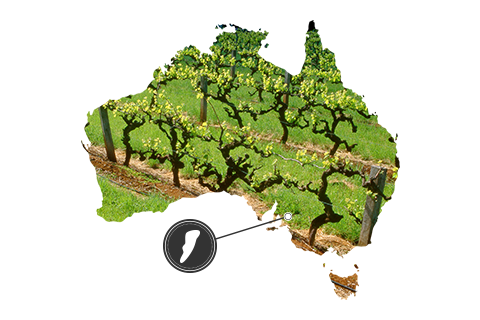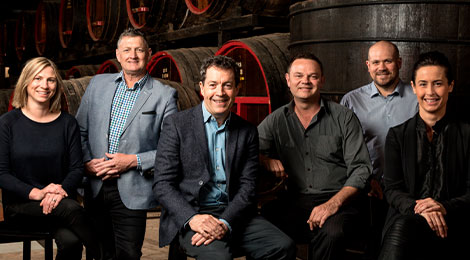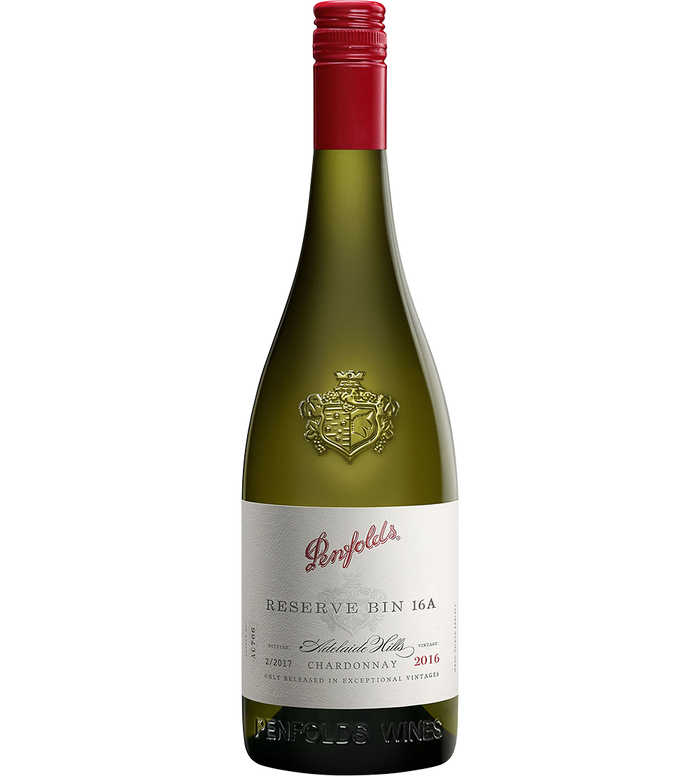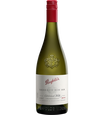Reserve Bin A Adelaide Hills Chardonnay 2016
Penfolds
Reserve Bin A Adelaide Hills Chardonnay 2016
Overview
Overview
Reserve Bin A Chardonnay has evolved into a wine that is now a distinctive, single-region style in its own right, with a contemporary and expressive Adelaide Hills chardonnay persona. Fruit is hand-picked into small bins and then whole-bunch pressed. A portion of the juice is incrementally filled to barrel directly from the press and allowed to undergo a natural fermentation, sans inoculation.
| Varietal | Chardonnay |
|---|---|
| Vintage | 2016 |
| Country | Australia |
| Region | Adelaide Hills |
| Volume | 750 mL |
| Closure | Screw Cap |
| Alc/Vol | 13.5% |
| Peak Drinking | Now - 2024 |
| Winemaker | The Penfolds Team |
Awards and Accolades
Awards and Accolades
| 97 points | James Halliday |
| Trophy | 2017 Royal Hobart Wine Show |
| Trophy | 2018 International Wine Challenge |
| Gold | 2018 International Wine Challenge |
| Gold | 2018 Decanter World Wine Awards |
| Gold | 2017 Royal Hobart Wine Show |
| Gold | 2017 Royal Melbourne Wine Awards |
| Gold | 2017 Royal Adelaide Wine Show |
| Gold | 2017 International Wine and Spirit Competition |
James Halliday
"Towers over Bin 311; a gloriously complex and expressive bouquet with fruit and high quality French oak both on song. Grapefruit/nectarine flavours are tightly wound together, and ride high, wide and handsome on the back of perfectly pitched acidity."
Food Pairing
Food Pairing
Beef
Chicken
Fish
Seafood
Pork
Cheese
Pasta
Veg
Taste Description
Taste Description
Nose
More citrusy than normal with lemon meringue and preserved lemon notes. And yet still harbouring typical Adelaide Hills white nectarine aromas alongside yeast lees/oak derived complexing characters, almond nougat.
Viticulture Vintage & Winemaking
Viticulture Vintage & Winemaking

Adelaide Hills, South Australia
The Adelaide Hills is one of Australia’s younger wine regions, but it’s as savvy as its famous Sauv Blanc. With a cool climate and high altitude, its dynamic winemakers are also responsible for top notch Chardonnay and Pinot Noir.
Vintage Conditions
The Adelaide Hills 2016 growing season commenced under mild and dry conditions. Rainfall was below average throughout winter and dry conditions persisted through spring resulting in early vine growth. Conditions for fruit-set and flowering were favourable and contributed towards above average vintage yields. Rain events during late summer were, for the most part, pre-veraison. Cool February conditions meant that ripening was steady and the slightly early start to vintage was a result of a mild and dry growing season. February and March weather allowed for a steady harvest, favourable flavour development and acid retention.

The Penfolds Team
Key to the success of Penfolds has been a lineage of visionary winemakers. There have only ever been four Chief Winemakers at the helm of Penfolds – Max Schubert, Don Ditter, John Duval and Peter Gago, each a custodian of a rich winemaking tradition that goes back for more than 170 years.
Our current Penfolds winemaking team has more than 100 years between them as Penfolds winemakers. They are constantly refining and improving their work, whilst honouring the winemaking techniques of their predecessors.


.png?sw=104&sh=156&sm=fit)